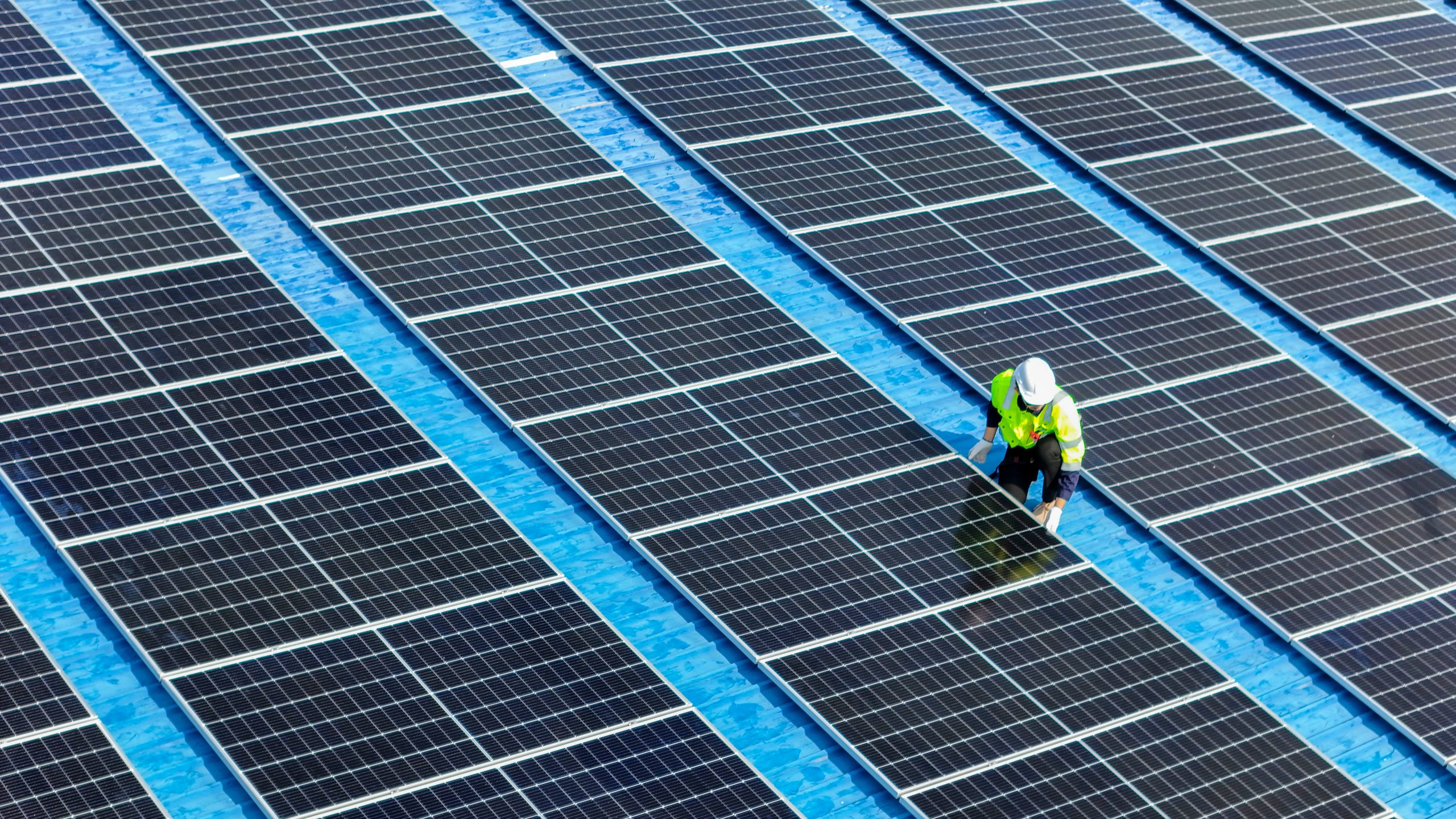
A Dark Side to Green Energy: Private Equity Risking the Future Economy by Neglecting Renewable Workers
August 29, 2024
To download a PDF version of this report, click here.
As the renewable energy sector has grown, private equity firms have made substantial investments in solar and wind power. These firms invest both directly in energy projects and in temporary work agencies that staff renewable energy projects. Two notable examples of this trend are Tradesmen International, a staffing firm owned by Blackstone, and Solv Energy, a solar firm owned by American Securities. As the United States moves towards a lower-carbon economy, worker advocates have called for a just transition that focuses on securing workers’ rights and livelihoods when shifting to sustainable production.
Under Blackstone’s ownership, Tradesmen International exemplifies how temp agencies can lessen the quality of jobs in the renewable energy sector. These temp agencies often provide short-term, low-wage jobs with minimal benefits, leaving workers without the security and stability necessary for a sustainable livelihood. This practice not only creates risks for workers but also risks the investments of those who support renewable energy projects.
Tradesmen International, which provides staffing across the energy sector, has a history of problematic labor practices. While under Blackstone ownership, the firm had a number of OSHA and wage and hour violations, as well as alleged unfair labor practices under the National Labor Relations Act. Solv Energy, which builds and operates solar projects, has also been criticized for its labor practices, as well as those of its subcontractor, including numerous OSHA violations, allegations of unfair labor practices, and accusations of using out-of-state workers to lower employment standards.
Similarly, Solv Energy, owned by private equity firm American Securities, demonstrates the responsibility that direct owners and operators of solar energy sites have in ensuring a just transition. Solv Energy and the firms it subcontracts with have a responsibility to support the safety, security, and quality of jobs available to workers in the renewable energy industry and should take steps to improve the long-term viability of renewable energy projects to create stable and ethical investments.
Private equity firms invest in a number of major renewable energy developers. Ares Management Corporation acquired a leading renewable energy firm, Apex Clean Energy, in 2021 and leads the company, which focuses on the origination, construction, and operation of utility-scale wind, solar, and storage facilities. Ares is also an investor in SB Energy, a utility-scale solar, storage, and energy management company. Private equity firm TPG invested $750 million in solar energy project developer Intersect Power in 2022. Additionally, The Carlyle Group founded its own developer of renewable energy assets, Copia Power, in 2021. These investments mirror trends toward clean energy – with global investment set to reach almost double the amount going to fossil fuels in 2024.
The role of private equity in the renewable energy sector raises critical questions about the future of work in a green economy. While the shift to renewable energy is essential for addressing climate change, it must not come at the expense of workers’ rights and well-being. A just transition requires that renewable energy jobs provide fair wages, job security, safe working conditions, and opportunities for advancement. Private equity firms and their investors must ensure labor standards are implemented and enforced across their portfolios to ensure a just transition to a low-carbon economy and minimize risks to investors.
Read the full report here >

